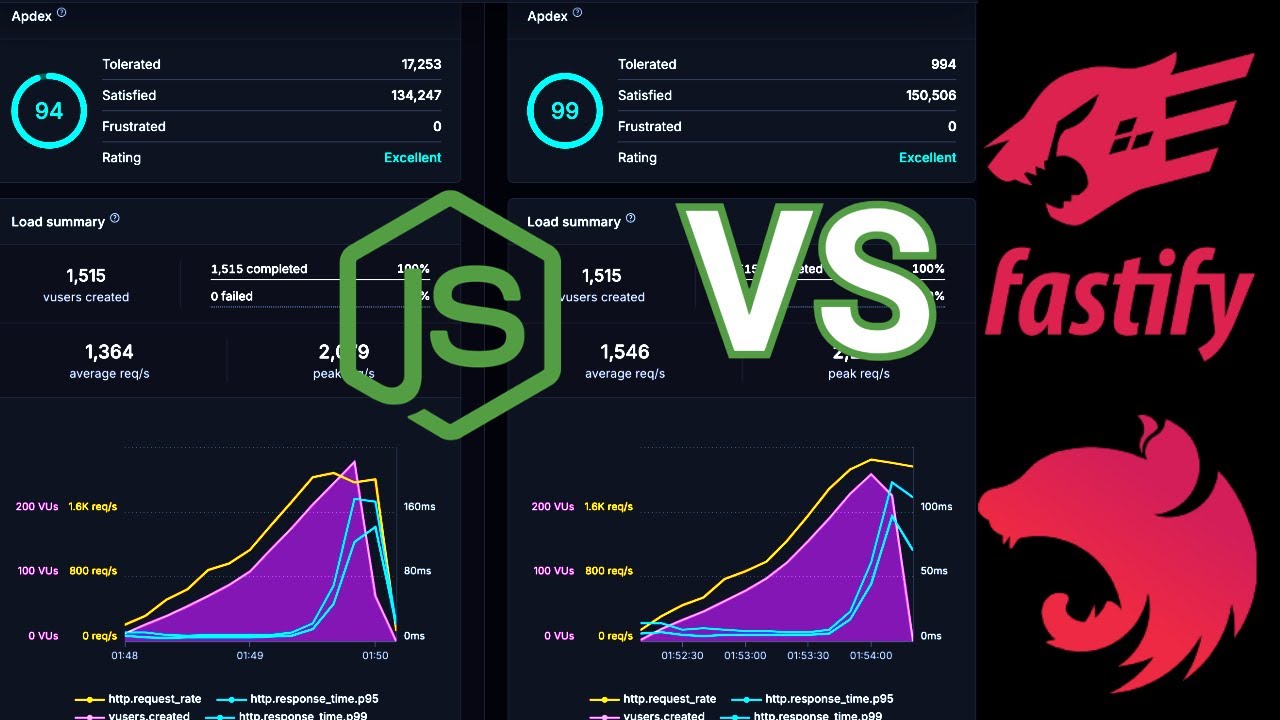nestjs vs fastify
 tkssharma
tkssharma
NestJS vs. Fastify: A Performance Showdown
Introduction
When building high-performance Node.js web applications, the choice of framework can significantly impact your application's speed and efficiency. NestJS and Fastify are two popular options that have gained significant traction in recent years. In this blog post, we'll delve into a performance comparison between these two frameworks, helping you make an informed decision for your next project.
Understanding the Frameworks
- NestJS: A progressive Node.js framework for building efficient, reliable, and scalable server-side applications. It is built on top of Express.js and leverages TypeScript for better code maintainability.
- Fastify: A high-performance Node.js web framework designed for speed and efficiency. It is built from scratch and offers a minimalist API with a focus on performance optimization.
Performance Benchmarks
To gauge the performance differences between NestJS and Fastify, various benchmarks have been conducted. While the results may vary depending on specific use cases and testing methodologies, here are some key findings:
- Raw HTTP performance: Fastify often outperforms Express.js in raw HTTP performance benchmarks, especially when handling a large number of concurrent requests.
- Middleware performance: Fastify's middleware system is generally considered faster than Express.js, leading to improved performance in certain scenarios.
- Memory usage: Fastify tends to have a lower memory footprint compared to Express.js, especially when handling large payloads.
Factors Affecting Performance
While raw performance benchmarks provide valuable insights, several factors can influence the actual performance of your application:
- Application complexity: The complexity of your application's logic and data processing can significantly impact performance.
- Database interactions: The efficiency of your database queries and connections can be a major bottleneck.
- Third-party libraries: The performance of third-party libraries you use can affect your application's overall speed.
- Infrastructure: The underlying infrastructure (e.g., hardware, network) can also impact performance.
Choosing the Right Framework
The best framework for your project depends on your specific requirements and priorities. Here are some factors to consider:
- Performance: If raw performance is a critical factor, Fastify might be a good choice.
- Development experience: NestJS offers a more opinionated approach and provides built-in features like dependency injection and modularity, which can improve development productivity.
- Community and ecosystem: Both NestJS and Fastify have active communities and a growing ecosystem of plugins and tools.
- Project complexity: For complex applications with multiple modules and features, NestJS's modular architecture can be beneficial.
Conclusion
Both NestJS and Fastify are excellent choices for building high-performance Node.js web applications. While Fastify often excels in raw performance benchmarks, the choice between the two frameworks ultimately depends on your specific project requirements and development preferences. It's recommended to conduct your own benchmarks and evaluations to determine the best fit for your use case.
Subscribe to my newsletter
Read articles from tkssharma directly inside your inbox. Subscribe to the newsletter, and don't miss out.
Written by

tkssharma
tkssharma
I'm a full-stack software developer creating open-source projects and writing about modern JavaScript client-side and server-side. Working remotely from India.